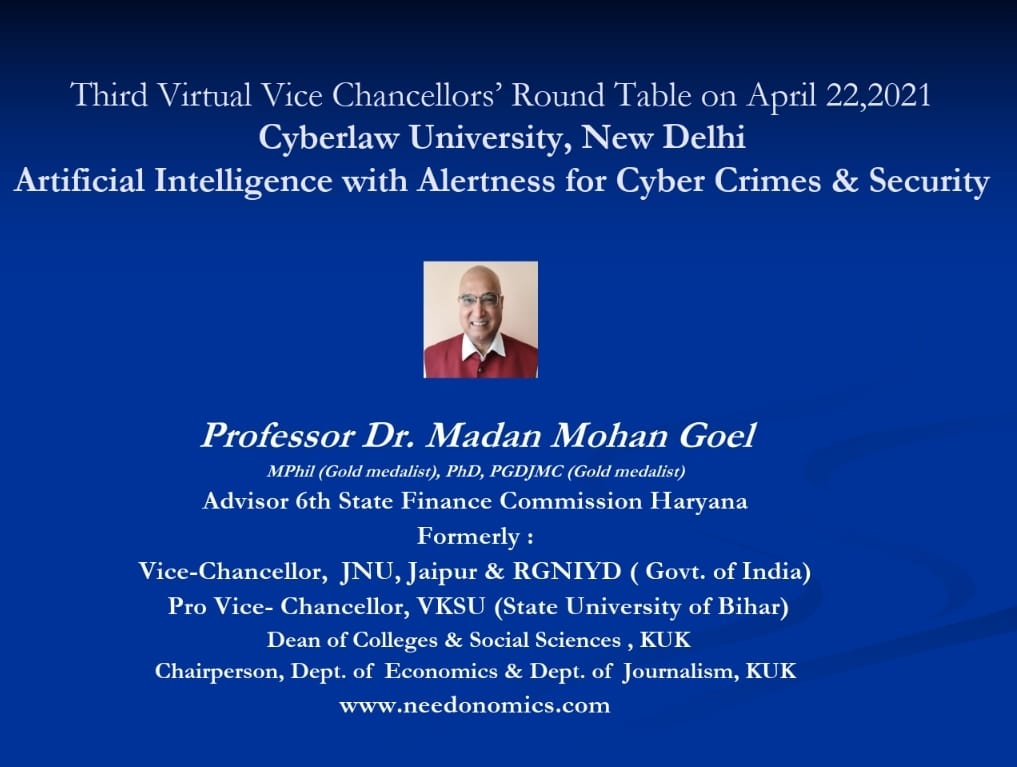Cyberbullying, a form of harassment and intimidation through electronic means, has become a pervasive issue globally, including in India. With the proliferation of social media platforms and digital communication channels, individuals, particularly adolescents and young adults, are increasingly vulnerable to cyberbullying
 KRC TIMES Desk
KRC TIMES Desk

Rahul Aggarwal
Cyberbullying, a form of harassment and intimidation through electronic means, has become a pervasive issue globally, including in India. With the proliferation of social media platforms and digital communication channels, individuals, particularly adolescents and young adults, are increasingly vulnerable to cyberbullying.
Cyberbullying encompasses various forms of online harassment, including but not limited to, spreading rumours, posting hurtful or threatening messages, sharing private information without consent, impersonation, and cyberstalking. Unlike traditional bullying, cyberbullying can occur 24/7, reaching victims even in the confines of their homes, and can have far-reaching consequences on mental health and well-being.
India, with its rapidly expanding internet user base, is witnessing a surge in cyberbullying incidents. Adolescents and young adults are primary targets, often facing cyberbullying in the form of trolling, online shaming, and image-based abuse. According to surveys and studies, a significant percentage of Indian youth report experiencing cyberbullying, highlighting the urgent need for effective legal interventions.
India has several legal provisions aimed at combating cyberbullying and related offences. The Information Technology Act, 2000, amended in 2008, contains provisions to address cyberbullying, including sections on unauthorised access, identity theft, and online harassment.
Additionally, the Indian Penal Code (IPC) criminalises acts such as defamation, stalking, and intimidation, which can encompass cyberbullying behaviour.
Despite the existence of legal provisions, enforcing laws against cyberbullying poses significant challenges. The anonymous nature of the internet complicates identification and prosecution of offenders. Moreover, the sheer volume of online content makes it difficult for law enforcement agencies to monitor and respond to cyberbullying incidents effectively. Additionally, the lack of awareness among law enforcement officials and the judiciary about cyber laws further impedes enforcement efforts.
Addressing cyberbullying requires a multi-pronged approach involving legislation, education, and technological interventions. Strengthening legal frameworks by introducing specific provisions targeting cyberbullying, enhancing law enforcement training on cyber laws, and establishing specialised cyber cells can improve enforcement mechanisms.
Moreover, raising awareness among youth, parents, and educators about the risks of cyberbullying and promoting responsible online behaviour is crucial in preventing and mitigating its impact. Additionally, collaboration between government agencies, social media platforms, and civil society organisations can facilitate the development of effective strategies to combat cyberbullying.
Cyberbullying poses a significant threat to the safety and well-being of individuals, particularly young people, in India. While the country has made strides in enacting legal provisions to address cyberbullying, challenges in enforcement persist. Efforts to strengthen legal frameworks, raise awareness, and promote responsible online behaviour are essential in combating cyberbullying effectively. By adopting a comprehensive approach involving legislation, education, and collaboration, India can work towards creating a safer and more inclusive online environment for all its citizens.
Advertisement | KRC Times





